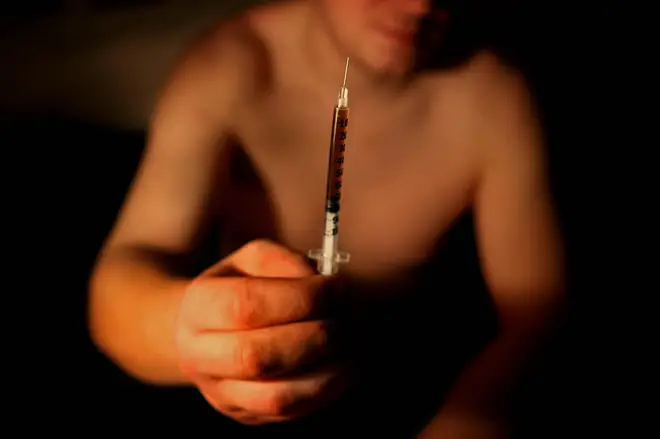
Henry Riley 4am - 7am
9 October 2019, 17:43

Heroin addicts will be given the drug free of charge by police in an attempt to cut crime and save the town money.
15 of the worst heroin addicts in Middlesborough will be given medical grade heroin to inject twice daily at a clinic.
Drug related crimes currently cost the North East town hundreds of thousands of pounds each year.
The scheme, known as the Heroin Assisted Treatment programme, is the first of its kind on the UK.
It is aiming to cut crime, reduce the number of addicts dying and improve their chances of recovery for Middlesborough's most "at risk" individuals.
In order to be a part of the scheme, addicts must have failed all other treatment programmes.
Some of the funding for the scheme is coming from Cleveland Police and Crime Commissioner Barry Coppinger's office.
Next week Heroin Assisted Treatment will launch in #Middlesbrough.
— Cleveland PCC (@Cleveland_PCC) October 9, 2019
This treatment and recovery programme aims to free the most entrenched heroin users from addiction and reduce their impact on public services.
Read: https://t.co/lkeafSSn3I
Clinical Lead Danny Ahmed explains: pic.twitter.com/KTVJPPxRsi
Mr Coppinger said "the policies of the past have failed" and "there are numerous studies that show HAT is cost-effective".
He went on: "In Middlesbrough the most prolific cohort of 20 drug-dependent offenders have cost the public purse almost £800,000 over two years - and that's based only on crime detected.
"By removing street heroin from the equation, you remove the need to commit crime to fund addiction and the impact this has on local residents and businesses."
"You remove the health risks of street heroin and the associated drugs litter, and you remove the drain on public services, including health and police."
"In addition, you halt the flow of funding to drugs gangs."
Clinical lead Daniel Ahmed said: "This treatment and recovery pilot is aimed at those for whom all other current methods have failed."
"They are on a cycle of offending, committing crime to raise funds for street heroin, being arrested and going to prison, being released and offending again."
"The cycle often only ends when they die, often in the street," he said.